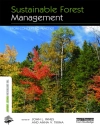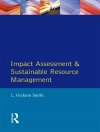What does a feminist urban theory look like for the twenty first century? This book puts knowledges of feminist urban scholars, feminist scholars of social reproduction, and other urban theorists into conversation to propose an approach to the urban that recognises social reproduction both as foundational to urban transformations and as a methodological entry-point for urban studies.
* Offers an approach feminist urban theory that remains intentionally cautious of universal uses of social reproduction theory, instead focusing analytical attention on historical contingency and social difference
* Eleven chapters that collectively address distinct elements of the contemporary crisis in social reproduction and the urban through the lenses of infrastructure and subjectivity formation as well as through feminist efforts to decolonize urban knowledge production
* Deepens understandings of how people shape and reshape the spatial forms of their everyday lives, furthering understandings of the ‘infinite variety’ of the urban
* Essential reading for academics, researchers and scholars within urban studies, human geography, gender and sexuality studies, and sociology
Про автора
Linda Peake is Principal Investigator on the SSHRC Partnership Grant, Urbanization, Gender and the Global South: A Transformative Knowledge Network (Gen Urb) and Director of the City Institute at York University, Toronto, Canada.
Elsa Koleth is a Post-Doctoral Fellow in the SSHRC Partnership Project Urbanization, Gender and the Global South: A Transformative Knowledge Network (Gen Urb) at the City Institute at York University, Toronto, Canada.
Gökbörü Sarp Tanyildiz is an Assistant Professor in the Department of Sociology at Brock University, Canada.
Rajyashree N. Reddy is an Associate Professor in the Department of Geography at the University of Toronto Scarborough, Canada.
darren patrick/dp is a writer, organizer, teacher, and Publications Manager and Editor for Urbanization, Gender and the Global South: A Transformative Knowledge Network (Gen Urb) based at the City Institute at York University, Canada.












